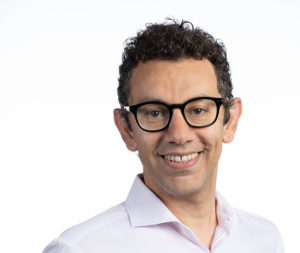
Warren Buffett is often quoted as attributing his wealth to, “a combination of living in America, some lucky genes and compound interest.”
I’m not Warren Buffett and I don’t live in America, but I can’t disagree with him on the power of compounding – or, in simple terms, when interest is earned on the interest you’ve earned.
If you’ve ever encountered the maths problem involving grains of rice on a chess board, then you’re already familiar with compounding. If you placed a single grain on the first square of a chessboard and doubled it on each subsequent square, you’d be placing more than 18 quintillion grains across its 64 squares. It’s a number so large you’ve probably never heard it said out loud. That’s the power of compound interest.
When it comes to investing, compounding is most effective over the long term. It needs time to work.
People who are yet to start investing often believe that they can’t afford to put away a meaningful amount that will help them achieve their financial goals. Thanks to the power of compound interest plus time, however, you can generate a larger sum by investing small amounts regularly rather than large amounts over a shorter period.
I’m an accountant by qualification, so I’m not going to turn down the opportunity to do some sums here.
Let’s say you started investing at 20-years-old, contributed £500 a month until you were 65 and earned a 6% return each year. Assuming yearly compounding – when the interest you earn is reinvested – you’d have put £270,000 aside and would walk away with a lump sum of £1,311,194.
Now, let’s consider what would happen if you held off investing until you could put a larger sum away each month. In this example, you start investing at 40 and put away £1,000 monthly until you’re 65. Once again, we’ll assume a 6% return and annual compounding. You’ll end up investing £300,000 to generate a final sum of £676,289. In other words, you’ll invest more and end up with less.
Why the difference between these two final amounts? You can chalk it up to compounding not having as much time to work in the second example.
In the first example, that initial 6% earned in the first year has had the opportunity to earn 6% again, and again, and again. Think of it as that first grain of rice on the chess board. In the second example, because of the shorter timeframe, our chess board is smaller.
It’s important for investors to recognise the manner in which compounding can accelerate the growth of their capital. Understanding it can help in focusing on the long term. As a standalone example, if you were fortunate enough to generate an annual return of 10%, you would double your money every 7 years.
This is particularly relevant when market conditions may cause many would-be investors to shy away from putting their money to work. When the economic outlook seems uncertain – as it is now – there’s a tendency to keep money under the proverbial mattress.
If you have a long-term investment goal, however – be it raising the deposit for a house or planning for retirement – you should think about whether your money is being given a long enough runway to make the most of the effects of compounding.
Picking the right time to invest in the stock market is far more difficult than letting compounding benefit your portfolio over time. And you don’t need to have Warren Buffett’s track-record to take advantage of it.
By Albert Soleiman

Albert Soleiman is the head of CMC Invest UK and is responsible for the day to day operations of the business and delivering on its strategy. Albert has been in the financial services industry for over 17 years having started his career at KPMG where he obtained his accountancy qualification. He started his career with CMC Markets in Australia in lead roles covering the Asia Pacific region. Having moved to the London HQ in 2008, Albert took on various senior management roles within the business. Before he rejoined CMC in 2020 as Head of CMC Invest, Albert worked for a leading blockchain solutions company as Tax Director.



